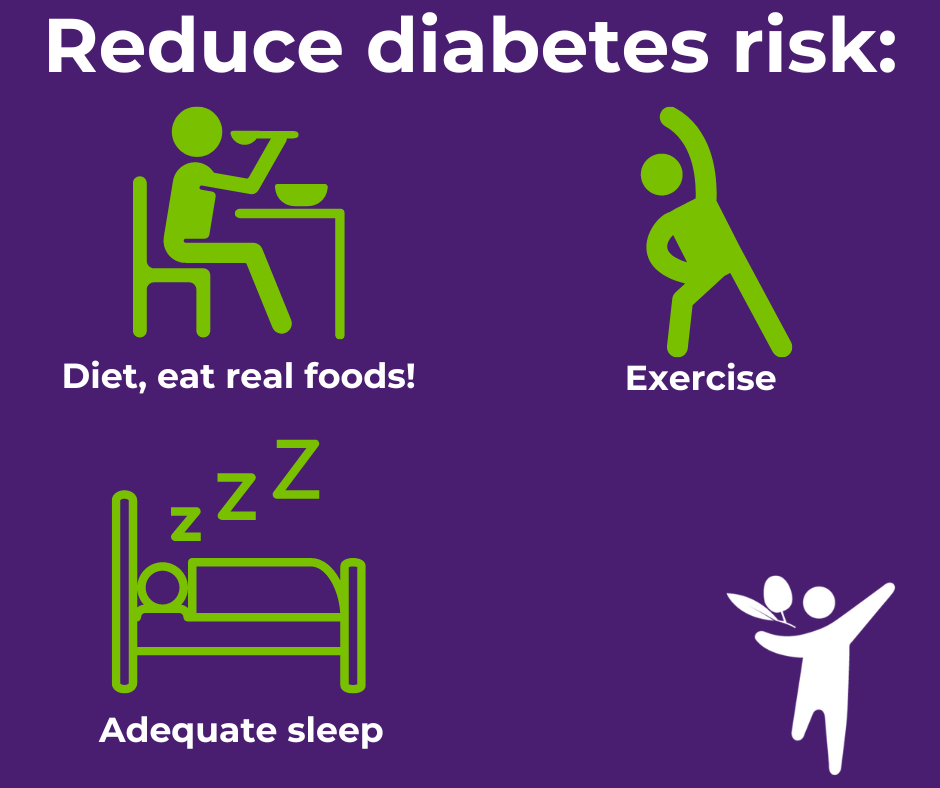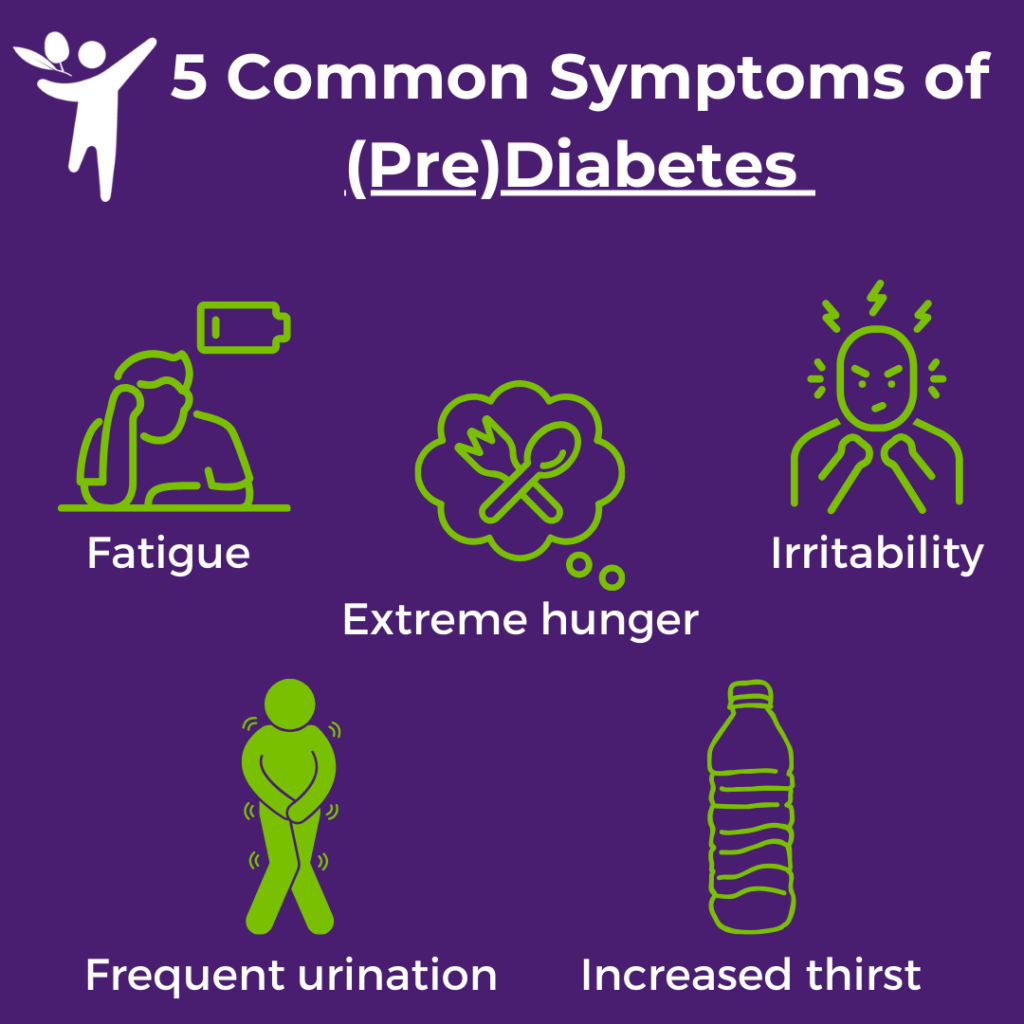Your risk of developing type2 diabetes is by no means set in stone. Each individual has a different level of risk, and genetics play a surprisingly small part. There are many factors but primarily lifestyle, that contribute to the overall risk. Inactivity and a poor diet lead the way as the greatest contributory factors for developing diabetes, but these are not alone. So, in this blog we will cover ways you can help reduce your risk of developing diabetes and some factors you could have overlooked.
What increases my diabetes risk?
Lifestyle is a massive factor. People who are inactive, perhaps due to work pressure or maybe just their general routine will inevitably place themselves at greater risk of developing diabetes. Regardless of your weight, if you lead a sedentary lifestyle, your risk of diabetes will be higher. Weight is an independent problem, not necessarily related to inactivity, and it’s also a poor predictor overall. In other words, do not think you are safe from diabetes simply because you are not overweight. The expression “You can’t outrun a bad diet” perfectly illustrates this point as we discussed with world leading scientist Prof Tim Noakes.
Tim was an international athlete and an authority on marathon running who nevertheless ended up with type2 diabetes as a result of his diet.

Obesity is the result of poor nutrition (too many calories, insufficient micro-nutrients). Poor diet (not the obesity that accompanies it) is the single main risk factor for developing type2 diabetes. Readily available ultra-processed foods have become a plague of addiction impacting the public’s overall health and creating the conditions for serious health conditions like diabetes, cardiovascular disease and even cancer. TLDR: poor lifestyle and poor diet both increase your risk of diabetes. Weight gain alone does not necessarily equate to an increased risk of diabetes.
Nutrition is a direct contributor to developing type2 diabetes. As we’ve covered in many of our other blogs such as Huel, McDonald’s Porridge and Veganism. Diets high in ultra-processed food, laden with carbs, sweets & chocolates etc all massively increase your risk of diabetes. These foods will cause your blood sugar to spike in turn leading to insulin resistance and the development of type 2 diabetes. Another factor often overlooked in increased diabetes risk is pre-diabetes. Prediabetes is the stage before you gone on to develop full-blown type2 diabetes. Many people (around 12 million in the UK) have pre-diabetes but are unaware because they have few symptoms and so overlook its significance.
Pre-diabetes is sometimes referred to as non-diabetic hyperglycaemia, where your blood sugar levels are above the normal range. Whilst in this elevated range it’s only a matter of time before this further deteriorates and becomes type 2 diabetes. If you discover that you have pre-diabetes, it’s critically important to address this ASAP. Pre-diabetes is reversible (we’ve helped numerous clients achieve this). Reversing pre-diabetes is the easiest and quickest way to drastically reduce your chance of developing diabetes and can be achieved by simply changing your diet. Maintaining a stable (normal) blood sugar level will, in time, reverse most cases of pre-diabetes. There is no fixed timescale for success, but we can usually help clients reverse their pre-diabetes in just 8-weeks.
General advice to reduce diabetes risk:
Some simple options include:
- Diet (Eat Real Food; reduce sugar and carbs)
- Exercise More (resistance plus cardio)
- Get Adequate sleep

Diet as we’ve discussed above, is an integral factor in determining diabetes risk. Aim for a diet that doesn’t result in frequent sugar spikes. Blood sugar levels do naturally rise and fall over the course of a day, but they should be gentle undulations, not high spikes. High spikes, followed by lows (hypos) are characteristic of the sugar roller coaster which we want to avoid at all costs. Spikes result in raised insulin leading to sugar crashes which, in turn, lead to a lack of energy, dizziness, and even trembling. Fewer spikes will prevent this and improve your insulin levels. This is the strategy to lower diabetes risk while improving the symptoms that arise from pre-diabetes.
Consistent exercise can reduce the likelihood of developing diabetes but there is no expectation that you must immediately go out and join a gym. Doctors recommend 150 minutes of moderate exercise per week. Depending on your initial fitness level, this could mean going for a brisk walk a few times per week, or swimming, which can be easier to do as it puts less strain on joints. In many ways, swimming is ideal exercise combining strength and cardio while being “whole body.” Essentially, if you push your activity levels a bit beyond whatever is your normal you will inevitably reduce your diabetes risk.
Finally sleep! Sleep plays a pivotal role in reducing diabetes risk and maintaining good overall health. Interrupted and insufficient sleep can affect insulin sensitivity adversely influencing how well your body copes with maintaining consistent blood glucose levels. Good sleep not only lowers diabetes risk, it has numerous other benefits in terms of keeping us healthy. We covered sleep in more detail here:
Conclusion
Our diabetes risk is not fixed and can easily be improved in any individual. By adopting the right dietary and lifestyle strategies, you can radically reduce your diabetes risk. It’s perfectly feasible to go from a high to a low risk of developing diabetes by making a series of stepwise, incremental lifestyle changes. Improving your sleep quality will also help manage insulin levels and improve overall health, especially mental health.
If you are concerned about your diabetes risk we’re here to help. Book a free, no-obligation consultation with Graham and learn how we can help you “Live Healthy for Longer”. What have you got to lose?
Book your 15-minute consultation here:






